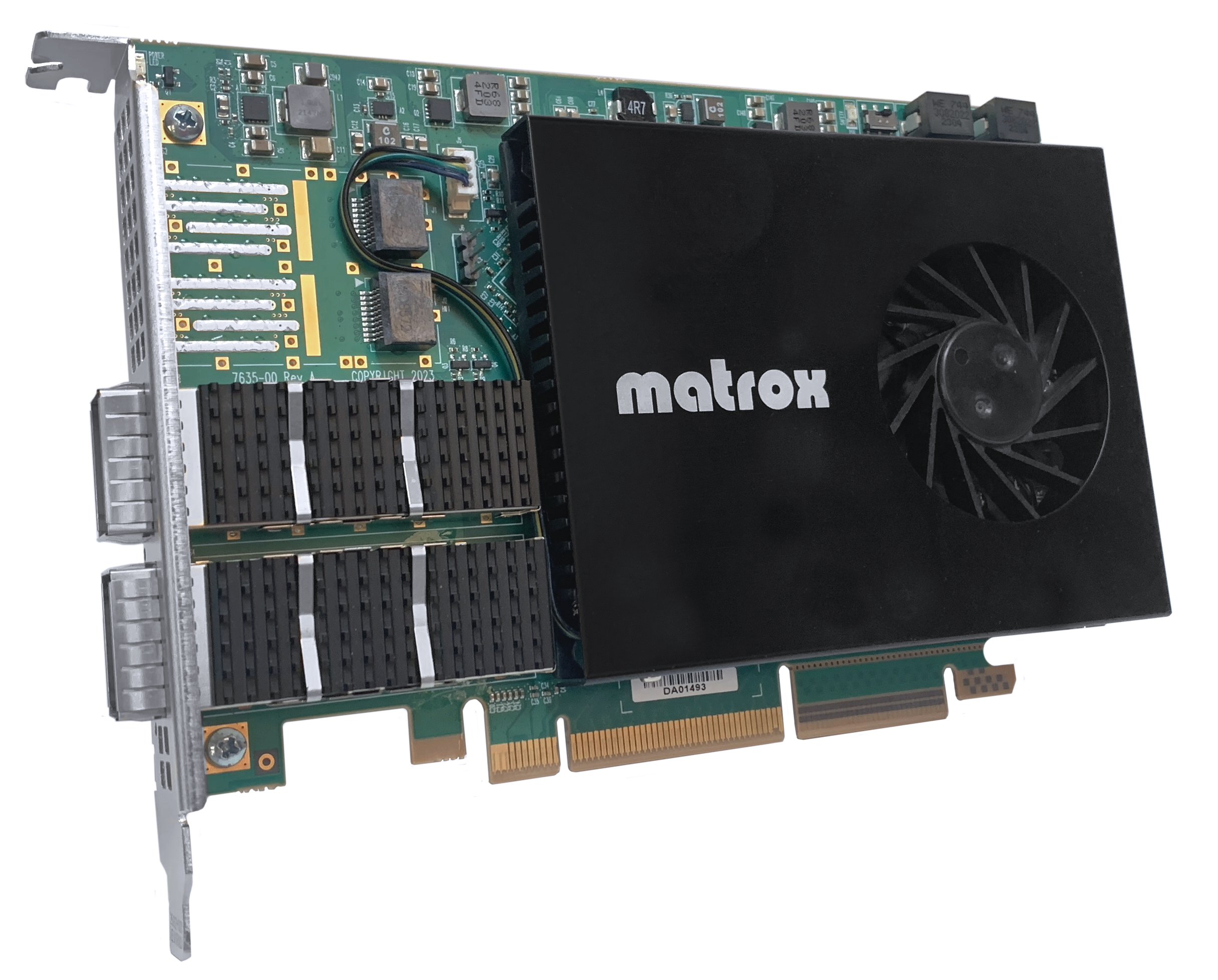Matrox Video Expands SMPTE ST 2110 Network Interface Card Lineup
Matrox DSX LE5 and XMIO5 ST 2110 NIC Cards are now complemented by two entry-level DSX LE5 D25 LP models and a new-generation DSX LE6 100GbE card

MONTREAL—Matrox Video has introduced low-density versions of the Matrox DSX LE5 D25 LP and DSX LE6 D100 network interface controller (NIC) cards. The new additions to the company's lineup of SMPTE ST 2110 cards enable flexible, cost-effective design of products supporting the broadcast and Pro AV industries' shift to IP workflows.
Offering multi-channel video inputs and outputs (I/O) over 10/25/100GbE networks, along with the media processing-rich Matrox DSX SDK, these new NIC cards allow equipment manufacturers to design any type of IP-based application from low-density HD/3G/4K and 8K workflows at the right price point within one SDK.
The new Matrox DSX LE5 D25 LP cards will be available in Q3 and the DSX LE6 D100 cards in Q4 2024.
"The Matrox Video commitment to the SMPTE ST 2110 standard is unquestionable, and by introducing both entry-level and ultra-high-spec ST 2110 NICs right now, we address the growth of the ST 2110 market — at many levels for many applications and productions — across broadcast and Pro AV," said Francesco Scartozzi, vice president of sales and business development, Broadcast and Media Group, at Matrox Video. "Our new ST 2110 NICs use the same robust DSX SDK as our popular DSX LE5 and XMIO5 D25/Q25 NICs, which have been used for years in the 24/7 ST 2110 infrastructures of the most prestigious broadcasters worldwide. The DSX SDK enables complete support of ST 2110 solutions with minimal engineering effort and resources. Because all the complexity of ST 2110 is managed by the SDK, developers handle the video, audio, and ancillary data buffers just as they would with an SDI application."
Architected as video-aware, commercial-off-the-shelf (COTS) ST 2110 NIC cards, the new Matrox Video cards deliver the interoperability and 24/7 reliability required of broadcast and Pro AV equipment while offering the flexibility and scalability expected of IP infrastructures. Like existing ST 2110 cards in the Matrox Video product portfolio, the new cards feature hardware-based PTP to provide nanosecond-range ST 2059-2 accuracy, and they offload all ST 2110 packet processing from the CPU. An ultra-low-latency (ULL) feature minimizes in-to-out latency for multichannel HD, 4K, and 8K applications, the company reported.
The new entry-level DSX LE5 D25 LP (low-profile) cards allow compact 1U, 2U, and 3U COTS systems to support lower-density workflows of 1080i/1080p/UHD over a 10/25 GbE interface. One card supports four HD/3G or one 4K/UHD reconfigurable I/O, and the other supports four HD/3G or one 4K/UHD I/O simultaneously, Matrox Video said.
Designed for high-performance media environments including broadcast and virtual production, the DSX LE6 D100 PCIex8 Gen4 card with dual 100 GbE interfaces supports multiple-channel 4K and 8K ST 2110 I/O and easily handles eight I/O of 4K/UHD p60/50 with ST 2022-7 seamless protection switching.
Get the TV Tech Newsletter
The professional video industry's #1 source for news, trends and product and tech information. Sign up below.
The Matrox DSX SDK (Win/Linux) provides the reliability and stability required for demanding broadcast and Pro AV operations. A unified architecture that is common across all Matrox ST 2110 NIC, SDI I/O, and H.264 codec cards, the DSX SDK supports key functions — including file reading/writing, memory management, and handling of a range of file formats, codecs, and effects — to facilitate agile development. A prototyping tool is also available to facilitate rapid simulation and testing of use cases without the need to write any code.
More information about Matrox Video and its products is available at video.matrox.com.
George Winslow is the senior content producer for TV Tech. He has written about the television, media and technology industries for nearly 30 years for such publications as Broadcasting & Cable, Multichannel News and TV Tech. Over the years, he has edited a number of magazines, including Multichannel News International and World Screen, and moderated panels at such major industry events as NAB and MIP TV. He has published two books and dozens of encyclopedia articles on such subjects as the media, New York City history and economics.

